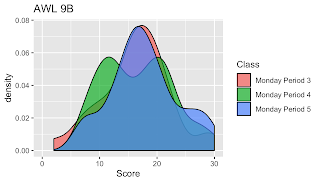Rose, R. (2016). Academic Reading in Science and Engineering Book 1. Tokyo: Waseda University.
Course Description:
Welcome to Academic Reading 1. This course has been designed to help you improve your academic reading ability through study and discussion of newspaper, magazine, and journal articles of varying lengths related to important issues in science and engineering. Emphasis will be placed on developing a deep understanding of sentence and text structure, and on developing micro and macro reading skills, so that relevant information can be found quickly and effectively without the need for translation into Japanese. In particular, you will be urged to start understanding English in English. You will also be encouraged to read beyond the target texts to gain a deeper understanding of the topics covered. After completing the course, you should be familiar with a wide range of academic texts, be able to understand and apply a wide range of reading skills necessary to tackle such texts, and have an understanding of recent issues in science and engineering.
Goal 1: To Learn the first 300 words of the Academic Word List
Goal 2: To guess word meaning from context
Goal 3: To recognize technical word definitions
Goal 4: To understand pronouns and restatements
Goal 5: To understand logical connectors
Goal 6: To understand topics and main ideas
Goal 7: To develop fluency in comprehending academic texts: your portfolio.
a) Portfolio: 27%
b) Science News Quizzes 16%
c) Intensive Reading 5%
d) Academic Word List Quizzes 20%
e) Final Test: 32%
a) Portfolio (27 points)
Your portfolio should contain 3 articles*. Make sure to include the source and date of your article, and do not use articles that were published earlier than the date of the beginning of the semester. If you read an article from a website, please cite the URL, as well as printing it out. You should number the articles, and for each article, you should highlight all the academic words (those which appear in the Academic Word List 570). You should identify the technical and unfamiliar words and write a definition of these words, or translate them into Japanese. Finally, in your own words, you should write a one paragraph accurate summary of at least 250 words, and a reaction statement of similar length. This means that you should not copy from the original text (not one sentence, or even part of a sentence). At the end of the semester (or earlier), you will hand in your portfolio to me for final assessment. Your portfolio should be entirely your own original work, and it should not be recycled from other courses or colleagues.
* The length of the articles that you read should be over 1000 words.
* Do not recycle old articles from previous semesters or from fellow students.
* Do not use the CELESE Trending Science News articles.
* Do not use English language learning websites that provide learning support.
* Choose articles that you find interesting.
* Your portfolio should demonstrate your integrity: responsibility, respect, trust, honesty, fairness, and courage.
• Each article should include its in-text citation and its reference in APA format.
Do not copy sentences.
Do not copy sentences and change the words.
Do not copy strings of words of more than five words long.
Your summary should be in your words.
Portfolio Grading Procedure:
There will be three deadlines for grading your portfolio this semester. Please show your portfolio article to your teacher who will grade it out of 9 points. This semester your assignments will be graded holistically out of nine points each. (The next semester may be different). After that, you should upload your article to a database using the portfolio article upload form below.
b) Science News Quizzes (16 points)
There will be two tests during the semester. These tests will be based on the linked articles that are uploaded to the CELESE WEBSITE (Trending Science News) on a weekly basis.
Science News Test 1 (8 points)
Science News Test 2 (8 points)
c) Intensive Reading (5 points)
Students should complete five intensive reading exercises in the textbook and show them to their teacher.
d) Academic Word List Quizzes (20 points)
There will be many practice exercises for you to master the Academic Word List. At the end of the semester, you will have two Academic Word List tests.
• Match Academic Word List words with their definitions. (10 points)
• Fill in the blanks of a text with Academic Word List words that you can choose from the list provided. (10 points)
e) Final Test (32 points)
This test is prepared by CELESE department and is scheduled after our final lesson as a class. For further information, and to view previous copies of the test, please check the CELESE website.
Attendance:
You should try to attend every class. Your attendance will be recorded indirectly from the weekly assignments or tests
Cheating:
Anyone suspected of cheating during any test will be awarded an "C" grade or a “F” grade. Do not take any online test outside of class, and do not pretend to be in class if you are not present.
Please do your best, be honest and diligent, and good luck!
Contact:
Please see me before or after class, or email me via CELESE.
Kind regards,
Chris Elvin
(weblog http://elvinar.blogspot.com)













